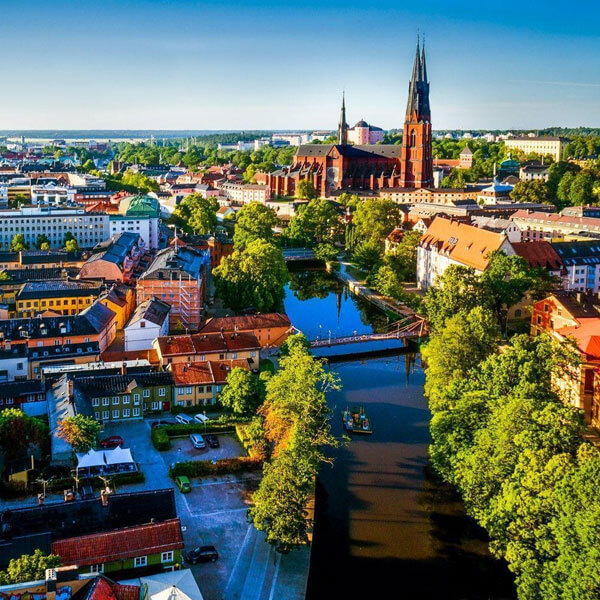Study Abroad
Study in Sweden
Sweden is home to some of Northern Europe’s most esteemed universities, with a rich history of academic excellence dating back to the 16th century. This strong educational heritage has established Sweden as a leading force in higher education, setting a high standard for global academic institutions.
Here’s why Sweden is a top choice for international students:
- Student-Friendly Cities: Sweden boasts some of the most student-friendly cities in Europe, with Stockholm, Gothenburg, and Uppsala frequently ranking among the top destinations for students worldwide.
- Popular Among International Students: Sweden welcomes a diverse community of international students, drawn by its inclusive atmosphere and high-quality education system.
- World-Renowned Universities: Sweden is home to several prestigious universities. According to global rankings, Swedish institutions are celebrated for their academic excellence and innovative research.
- Attractive Scholarships: Swedish universities offer a range of scholarships and financial aid options, making higher education both affordable and accessible for international students.

Programs and Their Duration in Sweden
Here are the programs that Swedish universities offer:
| Qualification | Duration | Optional Practical Training (OPT) |
|---|---|---|
| Undergraduate Degrees (such as BA, B.Sc., BEng) | 3 years | Up to 1 year |
| Master’s Degrees (such as MA, M.Sc., MBA) | 1-2 years | Up to 1 year |
| PhD Degrees (such as PhD) | 4 years | Up to 1 year |
This format highlights the typical duration of each program and the corresponding Optional Practical Training (OPT) period, which allows students to gain practical experience in Sweden after completing their studies.
Cost of Living in Sweden
The cost of living in Sweden varies depending on the city. On average, students can expect to spend between SEK 6,000 and SEK 12,000 per month. Major cities like Stockholm and Gothenburg generally have higher living expenses, while costs in smaller towns and rural areas are typically lower.
Academic Intake to Study in Sweden
Colleges and universities in Sweden generally offer two academic intakes each year. These intakes are commonly referred to as semesters. The two intakes available in Sweden are:
| Intake | Start Date |
|---|---|
| Autumn Intake | August |
| Spring Intake | January |
This format highlights the start dates for each intake, helping students plan their applications and academic schedules accordingly.
Top Universities in Sweden
Here are some of the top universities for higher education in Sweden:
| S.No. | Institution | QS Ranking 2024 (Globally) |
|---|---|---|
| 1 | Karolinska Institute | 39 |
| 2 | Lund University | 74 |
| 3 | Uppsala University | 112 |
| 4 | Stockholm University | 136 |
| 5 | KTH Royal Institute of Technology | 149 |
| 6 | Gothenburg University | 187 |
| 7 | Linköping University | 197 |
| 8 | Stockholm School of Economics | 252 |
| 9 | Malmö University | 301-350 |
| 10 | Swedish University of Agricultural Sciences | 351-400 |
This list highlights some of Sweden’s leading universities and their global rankings, showcasing the country’s strong position in the international academic community.







